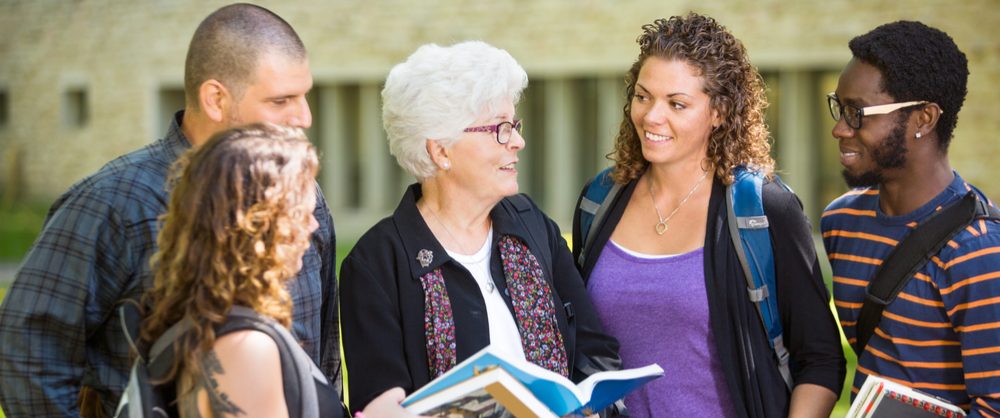Increasing student involvement in faculty research is a win-win proposition from many perspectives. Student assistance can greatly speed a faculty member’s ability to conduct research. It can encourage students to explore research careers for themselves. It builds student-faculty interaction, thereby improving the undergraduate educational experience and allowing students to develop one-on-one relationships with faculty that aid them in securing important graduate school recommendations. But doing all of this well takes some thought to maximize its potential. Here are a few things that I have learned over the 30 years I have invited undergraduates to work with me on research projects.
First, make undergraduate research involvement a priority on your campus and in your department. Students clearly understand that “cultivating” a relationship with a professor can have huge benefits for them down the road. This is both good and cautionary, as I will discuss. But there can be larger influences that encourage student participation for academic credit or other formal recognition. My campus has a center that matches researchers to student interests; opportunities are updated each semester. Most departments provide academic registrations to reflect intensive lab interactions that involve significant training and time commitment on the part of students. Until recently, students at the University of Maryland received transcript notations for successfully completing a volunteer experience with faculty.
Ask yourself: Do students know what kind of research you do? From the simplest venues (post your CV and research interests on your web site or put a sign-up sheet near your lab) to the more complex (create department- or University-wide listings for interested students), let students know what types of opportunities are available.
Sometimes, creating student awareness can succeed too well, and some faculty get more interested volunteers than they feel comfortable mentoring. Many faculty establish firm expectations for acceptance to work in a lab (e.g., GPA, verified coursework, Collaborative Institutional Training Initiative—CITI training) and even write contracts for student volunteer expectations (including hours/week, duties, ethical considerations in data handling, duration of experience). These safeguards are good all around. Even turning down a potential volunteer can offer good counseling opportunities, as when I suggest that improving academic performance might be a better use of valuable time in certain cases. Too often, especially at larger schools, students do not have an opportunity to sit down and discuss their academic program and future plans with a faculty member.
Think about supports for student volunteers. I used to work with students on a very individual basis—it was the more typical model for all research work during my own training experiences. Then I watched colleagues who set up larger, group-oriented laboratory experiences: manuals to train students in the broad aspects of their lab work, training activities to document mastery of the programs or protocols in which they will engage, and regular lab meetings (e.g., weekly or bi-weekly). During these meetings, we conduct background discussions of the overarching questions being addressed by the research program; trouble-shoot “glitches” or problematic coding; and solicit students’ thoughts about additional questions that could be asked. Over the years, my lab groups have grown into a dynamic set of interactions. Students say that they feel less like free labor for faculty; that they feel less stressed as they master new skills; that they get more personal support from me, my RAs, and other students; and that they feel like they are part of something larger that values their participation. Although meetings are strictly voluntary, I am amazed at how well-attended they are. Perhaps unsurprisingly, the degree to which I have set up supports, such as meetings and manuals, has made it easier for me to have students in the lab, as well as for the students to volunteer—there is a structure that guides them and helps them. We also have lab e-mail lists, so that a student who gets “stuck” can immediately post the problem to others. I am surprised at how fast other students offer cordial mutual support and guidance, even before I or my RA can respond.
Some research inherently involves students helping to “run” participants subjects in the lab or use equipment that is not easily portable or sharable. But if your projects use shareware—such as transcription analysis programs, PRAAT, or other easily downloaded software, even students with very demanding schedules can participate in research. An increasingly larger proportion of undergraduates work to help pay for their education and can feel excluded from some departmental experiences, as my exit interviews with students often suggest. With appropriate safeguards for confidentiality, even once cumbersome sets of data can be provided to students via ftp or file copying (students now routinely carry thumb drives that can store more data than I used to gather over years of collection). I have watched a free download, such as PRAAT, handle data more quickly and accurately than the single old computer I had to book in 1-hour increments during my doctoral training (when dinosaurs still roamed the Earth). I will sometimes offer an interested student access to old data I’ve collected to see if they can re-analyze the data in new ways at their own pace and scheduling.
If possible, it’s nice to have research options that allow students to move from less autonomy/supervision to more: I like to take students from introductory work that is highly structured to progressively more challenging and developmentally enriching options. A significant part of my research involves language corpus analysis. In my lab, students first learn to transcribe language samples using popular programs and conventions (such as the CHILDES Project tools), but then are shown how to use programs to analyze data, shown how we conduct statistics, and helped to understand what the findings suggest. At multiple points, students are encouraged to contribute questions that arise as they get to know the project better, understand the database, and learn the wealth of possibilities that can be explored using their new skills. I personally encourage students to explore my data, to potentially develop their own independent study projects, or to consider possible submission to on- and off-campus competitions. Over my 30 years at Maryland, this approach has generated scores of student-led presentations and articles. The importance of these experiences cannot be over-estimated, as, without them, students who may have fledgling research interests and capabilities would not be able to discover and explore the joys and benefits of a research career.
Finally, I believe it is imperative to value students. It is clear that my student volunteers have greatly aided my research productivity and often have stimulated new projects that I would not have thought of without their input and interest. I make it a point to thank them, to devote some part of our research meetings to broader student issues (particularly ever-consuming concerns about graduate school competition and options), and to hold end-of-semester get-togethers with small tokens of appreciation. I remind them that we are in the research process together: I love research and want to share what I do with them. I hope that some of them will see themselves in my place in their future careers. They are working with me, not for me, and I appreciate that.
Resources
Bacon, S. (2011). Inspiring undergraduates to pursue researcher careers: What faculty can do.
Hagstrom, F., Baker, F. B., & Agan, J. P. (2010). Undergraduate research: A cognitive apprentice model. SIG 10 Perspectives on Issues in Higher Education, 12, 45–52.
Smith, L. R. (2011). Audiology: The undergraduate research assistant: A mutually beneficial relationship. SIG 11 Perspectives on Administration and Supervision, 21, 47–53.
PROGENY Award: PROmoting the Next GENeration of Researchers
SPARC Award: Students Preparing for Academic and Research Careers










